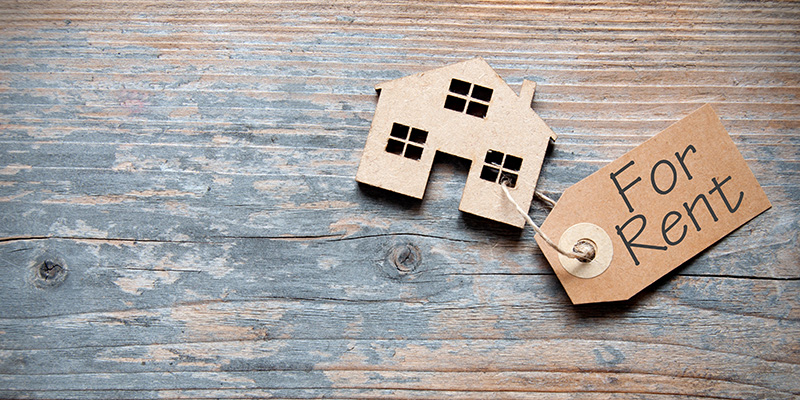A lot of people aspire to own and manage a rental property. But, becoming a rental owner is not as easy as it seems. In fact, there are several things one must know and do to be a landlord.
A Beginner’s Guide to Becoming a Rental Owner
At first glance, it may seem like managing a rental property is simple work. Most people think all there is to the job is finding tenants and collecting rent. But, before you jump into any big decisions, there are plenty of other aspects you must consider.
Here is your guide on how to become a landlord.
1. Understand Rental Laws
One of the first and most important steps to becoming a landlord is to understand rental laws. As with a lot of businesses, which property management basically is, there are several laws that can apply to rental properties. The federal Fair Housing Act, for instance, is a big one. But then, most states also have their own state-level fair housing laws. There are even laws at the local level that can apply to rental properties and landlords, particularly when it comes to short-term rentals.
2. Invest in Property
The next thing you should do is find a suitable rental property. Top factors to consider when it comes to selecting a rental property include:
- Location
- Size
- Type
- Property value
- Local rental market
It is important to strike the right balance when it comes to buying and owning rental property. If you buy a property that’s too expensive, you might have a hard time getting a return on your investment. But then again, a property that’s too cheap is usually a fixer-upper. And that would mean having to spend loads of time and money on renovations and repairs.
Of course, some people get into the rental game because they already have a house or apartment to spare. In that case, you will need to calculate whether or not you’ll be able to earn a profit from your current property. Owning a rental house means having to consider profitability in the equation and letting that inform your decision on whether to rent it out or simply sell it.
3. Get Insurance
There are typically no licensing or certification requirements to be a landlord. But, while not obligatory, it is smart to purchase sufficient insurance. The main policy landlords should get is landlord insurance. If the rental property is attached to your primary residence, talk to your insurance provider about the possibility of including it under your homeowners insurance policy.
4. Advertise
A new rental property owner should also know how to advertise their listing. Rental properties don’t just magically become tenanted. You need to get the word out there to attract applicants.
When creating your ad, make sure to use compelling language, but not too much that it might overpower everything else. Provide all the details of the rental, including any policies you have (no-pets policy, no smoking policy, etc.). Letting potential applicants know of these details upfront will make the selection process much easier. Remember to also accompany your listing with photos of the property.
5. Set the Right Rental Rate
If you thought being a landlord didn’t come with research and analysis, you’re wrong. You can’t collect rent if you don’t set it first. But, setting the right rental rate is not as simple as you might think. You can’t just decide on an arbitrary price and roll with it.
A good way to determine rent price is to do some local market research. See how much other landlords are charging for similar properties in your area. You also have to factor in your property’s monthly expenses and any amenities you have. Be careful, though. Charging too low a rent can cause a net loss while charging too high a rent can scare away potential tenants.
 6. Screen Tenants
6. Screen Tenants
Not all tenants are made equal. Good tenants pay their rent on time and take care of the property, whereas bad tenants are the complete opposite. To ensure you land good tenants, screening is paramount. That means doing credit checks, background checks, and employment checks, as well as asking for references and talking to past landlords.
7. Draft the Lease Agreement
Becoming a rental owner also involves quite a bit of legal work. Apart from understanding federal and state laws, you need to be able to draft your own rental contract. Your lease agreement should include all pertinent details of the deal, including landlord and tenant responsibilities, a termination clause, and other lease terms. If you don’t know where to begin, hiring an attorney might be helpful.
8. Collect Rent
Now comes the most highly-anticipated part — rent collection. For a smooth process, you should have a standard procedure when it comes to collecting rent. That means setting a deadline (and a grace period), only accepting certain modes of payment, and imposing late fees. For new tenants, you will also need to collect a security deposit, which is typically one month’s rent.
9. Maintain the Property
When learning how to be a landlord, property maintenance is vital. There is a common misconception that landlords don’t do much work, but maintaining the property alone is already a big responsibility. You have to perform routine inspections to check for any damages and address any maintenance issues that your tenants report to you. As a landlord, you have to provide a habitable home for your tenants. It also helps maintain curb appeal, which has a direct impact on property value.
10. Keep Records
If you’re becoming a rental owner, you need to know how to document and keep records of everything. This includes copies of your insurance policy and lease agreements (and any addenda). You will also need to take and keep photos of the property when tenants first move in. Having these before photos will help you identify whether or not a tenant has damaged the property throughout their stay.
How Much Profit Do Landlords Earn?
It is impossible to determine exactly how much you will earn from owning a rental property. This is because there are a lot of variables, and prices can increase or decrease with time. To ensure you earn a profit, it is crucial to work backward. List down all of your potential monthly expenses and make sure you charge a rental rate that can cover all of that.
Some of the most common monthly rental property expenses include:
- Mortgage payments (if applicable)
- Maintenance and repair costs
- Insurance premiums
- Utility bills (for multi-family properties)
- Management fees
- HOA dues
Other one-offs or irregular fees include:
- Real estate broker fees and closing costs (if applicable)
- Marketing fees
- Tenant screening costs
- Pest control costs
- Capital improvements
- Property taxes
The Need for a Property Management Company
Managing a rental property can be overwhelming, especially for a new landlord. As such, many turn to a professional property manager for help. Property management companies offer a wide variety of services, including advertising, tenant screening, rent setting and collection, and maintenance management. Many also provide assistance with legal work, tax preparation, and evictions.
Who needs to hire a property management company? Landlords who:
- Live far away from their rental property;
- Own multiple rental properties or a multi-family rental property;
- Have no time for property management;
- Are not skilled in property management; and/or,
- Have no interest in hands-on property management.
Before Making a Commitment
Becoming a rental owner certainly comes with plenty of benefits. A lot of people get into this business to earn passive income. But, becoming a landlord takes more time and effort. Before making your decision, it is essential to first evaluate your situation and understand what type of work goes into the job.
If you need a property management company to help you out, Rental Choice is the best place to go. Our online directory consists of trusted property management companies that you can narrow down by area. Start your search with us today!
RELATED ARTICLES:
- Broker, Owner, And Landlord Responsibilities
- Are You Charging A Fair Rental Rate?
- 11 Reasons To Hire A Rental Property Management Company




 Company
Company